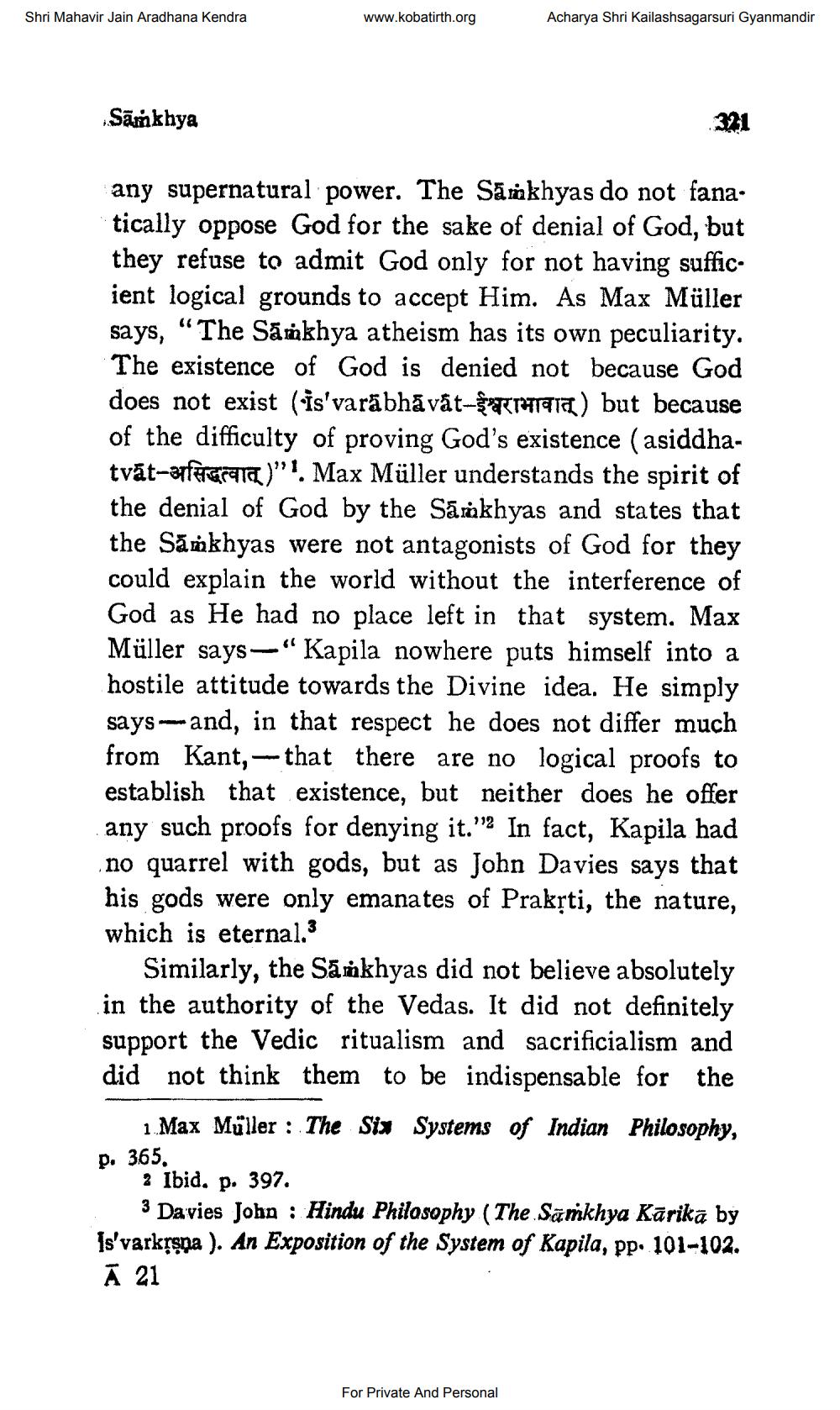________________
Shri Mahavir Jain Aradhana Kendra
www.kobatirth.org
Acharya Shri Kailashsagarsuri Gyanmandir
Sāmkhya
321
any supernatural power. The Sankhyas do not fanatically oppose God for the sake of denial of God, but they refuse to admit God only for not having suffic. ient logical grounds to accept Him. As Max Müller says, “The Sārikhya atheism has its own peculiarity. The existence of God is denied not because God does not exist (is'varābhāvāt- THRIT) but because of the difficulty of proving God's existence (asiddhatvát-afferrara)"!. Max Müller understands the spirit of the denial of God by the Sámkhyas and states that the Sākhyas were not antagonists of God for they could explain the world without the interference of God as He had no place left in that system. Max Müller says “Kapila nowhere puts himself into a hostile attitude towards the Divine idea. He simply says ---- and, in that respect he does not differ much from Kant, -that there are no logical proofs to establish that existence, but neither does he offer any such proofs for denying it.” In fact, Kapila had no quarrel with gods, but as John Davies says that his gods were only emanates of Prakrti, the nature, which is eternal.3
Similarly, the Samkhyas did not believe absolutely in the authority of the Vedas. It did not definitely support the Vedic ritualism and sacrificialism and did not think them to be indispensable for the
1. Max Müller : The Six Systems of Indian Philosophy, p. 365.
2 Ibid. p. 397.
3 Davies John : Hindu Philosophy (The Samkhya Karika by Is'varkyspa ). An Exposition of the System of Kapila, pp. 101-102. Ā 21
For Private And Personal




